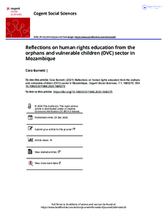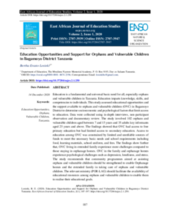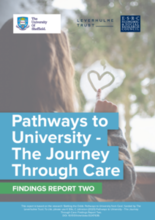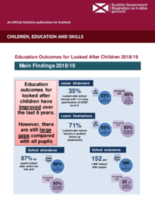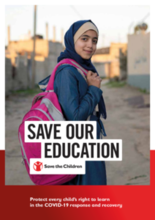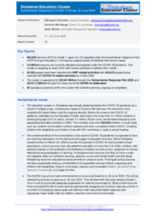Displaying 11 - 20 of 349
This paper examines the effects of Human Rights Education (HRE) on youth in the impoverished community of Trevo in Mozambique, particularly orphans and vulnerable youth.
This study assessed educational opportunities and the support available to orphans and vulnerable children (OVC) in Bagamoyo District to determine socioeconomic and psychological factors that limit access to education.
The authors of this study conducted research with 234 care experienced university students in England and Wales to explore their experiences of the journey through care.
This study sought to determine whether home environments with higher levels of emotional support and cognitive stimulation predict later academic achievement and whether this relationship is moderated by placement type (i.e. biological/adoptive parent care, kinship care, or non-kinship foster care). This study included 1,206 children from the second U.S. National Survey of Child and Adolescent Well-Being (NSCAW-II) who were involved with Child Protective Services (CPS) between 2–7 years of age.
The annual update on Education Outcomes for Looked After Children covering 2018-19 has been released by Scotland’s Chief Statistician.
The goals of this article were to (a) examine the changes in educational achievements of children in care from preschool through the end of primary school; (b) identify subgroups exhibiting distinct educational trajectories; and (c) explore key predictive individual, care, and school characteristics.
This brief article from Student Affairs Today highlights some of the lessons learned by student affairs professionals regarding foster care support programs at higher education institutions in the United States in light of the COVID-19 crisis.
New analysis in this global report shows how COVID-19 may impact the funding of education, as well as the countries most at risk of falling behind.
This brief from the Zimbabwe Education Cluster presents details on the humanitarian needs and response in Zimbabwe due to the COVID-19 crisis, including the acute needs of orphans and vulnerable children, children with disabilities, and others.
This study explores the factors that are associated with positive educational outcomes for HYA with and without a foster care history.

